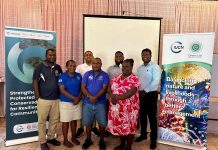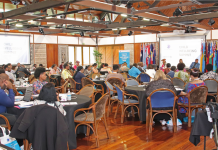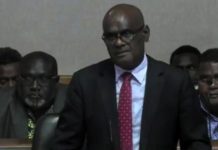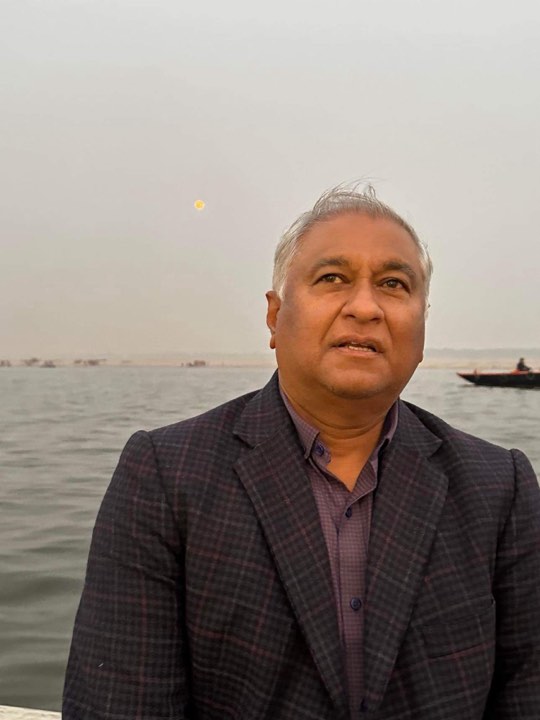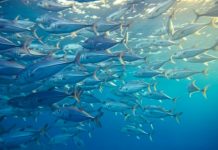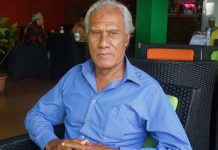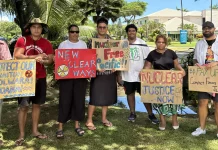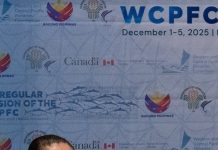By Dr Satyendra Prasad
The Finance Ministers of G20 met earlier this week in Brazil. Collectively, these G20 countries account for over 80 percent of the global economy; wield considerable control over global development financial institutions.
Most G20 countries claim to be close friends of the small island developing states (SIDS). Yet their communique does not make a single reference to the plight of the small island developing states. Are SIDS being cancelled?
Pacific’s Finance and Economy Ministers meet in Suva this week against that backdrop. This is a hugely important for shaping Pacific’s financing and development agenda and projecting it internationally.
When the Pacific’s leaders adopted their 2050 Strategy last year, they agreed that the defining challenge the region faces is climate change. They said so with zero ambiguity.The Pacific’s Roadmap for Economic Development is a core part of its response.
The ministers sail choppy seas. The fiscal stress; the climate stress; and the relentless geopolitical stress across the Blue Pacific is having adverse consequences for their economies. Many are falling well behind in most of their SDG goals.
The Blue Pacific’s climate story is one of growing failure – one step forward and two back at the best.
Fiscal stress by a thousand climate cuts
The climate crisis impacts across the whole economies. Increased surface temperatures mean poorer yields for PNG’s coffee and cocoa. Warming seas impact coral reefs with worrisome consequences for food security for Pacific’s coastal communities.
Excessive rainfall means that water systems get damaged more frequently in Honiara. Rising sea level and king tides mean more water sources are being lost to seawater contamination in Kiribati. More frequent and larger storm surges mean that sewage systems across the coastal cities such as Port Vila and Rarotonga are overwhelmed and damaged more frequently.
School days lost to bad weather mean worsening educational outcomes for children. Longer periods of rain means that health systems need to be respond to dengue outbreaks more frequently.
The Pacific’s finance and economy ministers know too well that resources at their disposal are being persistently depleted by climate change in so many ways. They know that their budgets are now in the code red zone.
Can a finance COP 29 Deliver?
Fiji alone needs to be spending $100 million more per month – largely to stay still. The region as a whole needs to be spending at least $1billion per year to respond to their minimum adaptation needs. They are no where near this. The Pacific cannot respond to the climate crisis on this scale. It needs international solidarity to do so.
It is through international agreements that Pacific’s ability to respond to the climate crisis will be secured. The forthcoming COP29 to be held in Baku is significant in a foundational way for the Blue Pacific.
This Climate Cop to be held in Azerbaijan must agree to a new framework and a new quantified goal for climate finance. Developing states have argued that climate finance that should be made available in the order more than US$1 trillion annually. This is a much larger figure than the US$100 billion per year that is available today.
In a supercharged geopolitical environment and a global environment where too many other challenges such as the war on Ukraine; difficult elections in several large countries, the prospects for closing the climate finance gap finance gap look bleak. But finance ministers cannot return from that COP without an agreement. That would be fatal.
A Geopolitical Gridlock
The Pacific is being re-shaped in ways that we do not fully comprehend. The Pacific’s leaders have repeatedly raised concerns about geopolitical contestation and its consequences.
Pacific’s leaders know from their private conversations with World leaders that the geopolitical gridlocks will undermine Pacific island economies in substantive ways. The regions Finance and Economy ministers need to cut through these challenges.
Reducing their debt exposure is an important start. But debt relief for small states requires international cooperation. Pacific Islands need to borrow externally each time they face a climate catastrophe. To not do so will also require international cooperation.
We know that there exists a gridlock today. We know that the Pacific states cannot wait for a better geopolitical environment. Larger climate vulnerable countries like Indonesia and Bangladesh can wait. Not the Pacific.
Pathway to Security
The region’s finance and economy ministers have this impossible task of framing a pathway to security and stability . Development and prosperity may grow from this – not in spite of this. They largely agree that the largest hurdle on the regions pathway to security is climate finance. Many multiples of present levels of climate finance needs to flow to the region on speed; not in five years from now but now.
Ten starting points
Firstly, the Finance and Economy Ministers can get its Pacific Resilience Facility (PRF) fully funded and operational as soon as possible. This provides a floor level of financing.
Second, they could take a clear and costed regional case to the international community on the most urgent adaptation priorities. Well developed proposals – nationally, regionally and sub-regionally are more likely to be funded. The costs of adaptation increases every day that it is delayed. These costs increase exponentially – not incrementally.
Thirdly, drawing on Tonga and Fiji’s Finance ministers proposals, Pacific’s ministers should propose that vertical climate finance mechanisms and the Green Climate Fund agree and adopt specific small states financing windows. Our communities need to feel that the global community is beginning to work for them. They don’t today.
Fourthly, PIF, Caribbean and Indian Ocean islands finance ministers should quantify and agree the financing needed between now and 2030. This needs to be specific and not aspirational. This needs to grow from robust national and regional level plans.
Fifthly, Ministers should use their time together this week to build up regional programs for financing on scale. Fiji can build 300 sea walls through a single multi-donor financing framework should it choose to do so. Fiji, PNG, Solomons and other countries working together can build up a program for financing and construction of the 2000 plus sea walls that are needed across the region today as a single multi-donor financing programme.
Sixthly, convene an urgent Caribbean and Pacific Finance ministers meeting to seek a practical, time bound path to ultra concessionary loans. These will be loans that have World Bank’s IDA like terms and a minimum 50 year repayment period.
Seventh, commence discussions on establishing a Pacific Development Bank. This will not compete with ADB and the World Bank but be an important mechanism to set the tone and priorities that other financial institutions will need to follow. This is about voice and sovereignty and less about finance. The Caribbean has a head start.
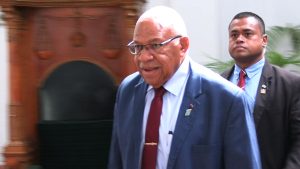
Eight, taking cue from Fiji’s Prime Ministers proposal for the Blue Pacific as an Ocean of Peace, take steps to establish regional blue funding mechanism in ways that both promote sustainability and that destress regional and national governance systems. 
Ninth, taking cue from Samoa’s Prime Minister, commence dialogue on building a fully integrated region – a region that guarantees mobility for businesses, people and companies and through that drive resilience.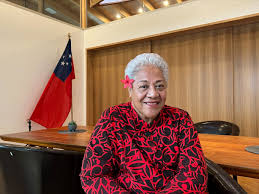
Finally, the region does not need endless diagnostics and workshops. Its case for climate finance on speed and scale is just. No other region lives in such an “overtime zone” as does the Blue Pacific. The Ministers may declare a code red for the Blue Pacific this week.
Such a declaration would serve to bring a greater sense of urgency in how their development partners engage with them. The Blue Pacific’s communities look to their finance ministers for a feasible vision of hope and security.
In a geopolitically super charged global environment that is witnessing a systemic dilution of the recognition of special circumstances and elevated needs of small Pacific island as in the G20 Finance Ministers declaration earlier this week, the stakes could not be higher for Pacific’s economy and finance ministers.
Dr Satyendra Prasad is a Senior Fellow at the Carnegie Endowment for International Peace and the Climate Lead for Abt Global and is based in Canberra.



